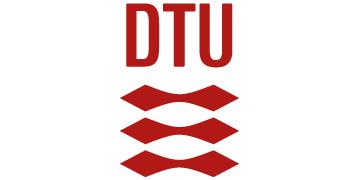Senior Researcher in Space Instrumentation and Modelling
You will become responsible for independent analyses of accuracy assessments...
The Measurement and Instrumentation Systems (MIS) division at DTU Space, the Danish National Space Institute, is researching space instrumentation centered on electro-optical optical navigation and magnetometry. Based on this research, numerous space instrumentation concepts has been developed, which now are employed on international satellites from most of the world.
In connection with this research, and with special emphasis on analysis and further development of the instrumentation systems developed at the MIS, we seek a senior researcher. You will, in close collaboration with the relevant research teams at MIS, conduct scientific and technical research and modelling of space based electro-optical and magnetometry instruments at international top level, partly on data from missions presently operated in space, partly on simulated data from future mission concepts. The research is centered on instrument performance modeling, performance assessments and characterization, with emphasis on improvement methodology.
Responsibilities and tasks
MIS instruments are used for optical based space navigation and control, magnetometry, as well as ancillary science observations. Our new senior researcher will become part of the team that support the suite of our instruments already operating in space, as well as partaking in the design of novel instrumentation for future space missions. Because the research is performed in close collaboration with our international partners, you must master written as well as spoken English.
You will become responsible for independent analyses of accuracy assessments and contribute to anomaly analyses and modelling, both of which is performed in MatLab. Spacecraft ancillary data will typically be in the format used by Nasa’s JPL Ancillary Instrument Facility data format (NAIF).
Your analyses work, in the form of reports or technical notes, will become part of the scientific or performance verification basis for the missions concerned, and your scientific and technical results will be presented at relevant conferences and journals. You will work in a highly specialized research team, in a friendly and respectful atmosphere, with high expectations to personal skill, professionalism and level of achievement.
Candidates must:
- Hold a PhD degree (or equivalent), as well as academic qualifications equivalent to those obtained by holding a position as a researcher or postdoc.
- Be skilled in satellite flight data analyses, including data from deep space satellites.
- Have experience working with a scripting language at expert level, preferably MatLab.
- Have experience working with Nasa’s JPL Ancillary Instrument Facility data format (NAIF).
- Have demonstrated experience working with magnetometer data and/or optical navigation instrumentation.
- Have experience with magnetic gradiometry and in modelling of the magnetic field of the Earth and outer planets.
- Have experience in working with space science missions.
We expect that you are highly engaged in your research and have established international collaboration partners and networks. You enjoy working with complex topics and you are motivated by both individual and team accomplishments. Flexibility and self-motivation are desired skills at DTU. In addition, we expect you to be collaborating and contributing to the ongoing research at the MIS. Publication records include first tier scientific papers.
Application procedure
Please submit your online application no later than 2 January 2020. via the "Ansøg" link.
Please write in your application that you've seen the job at Jobfinder

